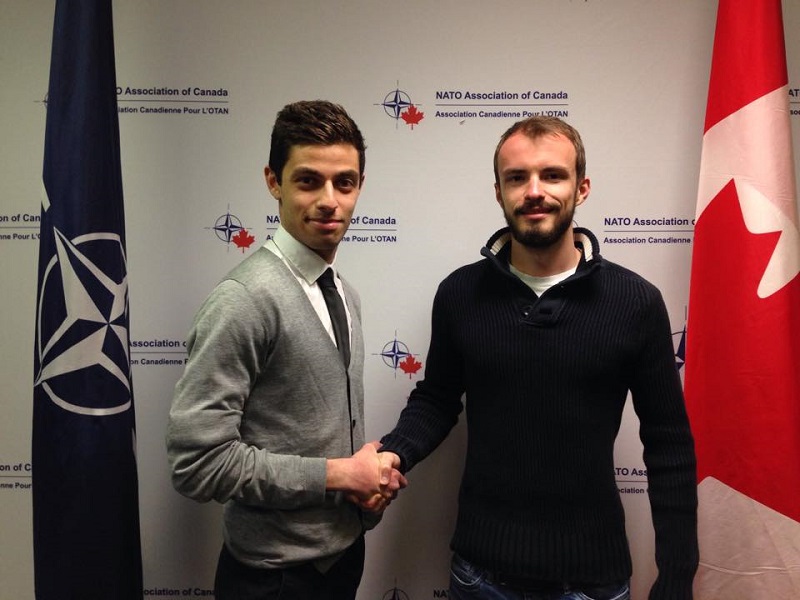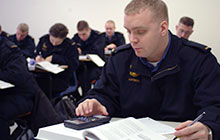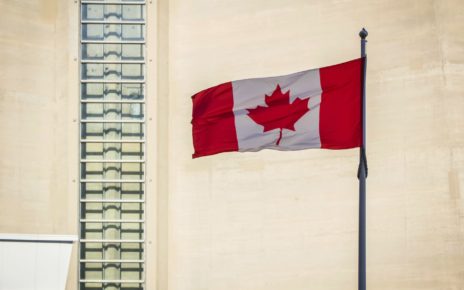The Government of Canada recently declared that employees of the federal public service and members of the Canadian Armed Forces (CAF) should soon expect mandatory coronavirus vaccines. This policy is not without historical precedent. For over a century, mandatory vaccinations have been a widely dreaded, occasionally contentious, and ultimately vital fixture of Canada’s military.
A mass and mandatory vaccination system grew out of the Boer War. For the Canadian Army Medical Corps (CAMC), the war in South Africa, where preventable diseases like typhoid had killed many, revealed the worth of vaccinations. Accordingly, following the first salvoes of global conflict in 1914, jabs increasingly greeted incoming recruits.
Achieving universal force coverage, however, took time. Initially, immunizations remained optional, at least officially. In the Royal Montreal Regiment, “inoculation was referred to as a ‘voluntary’ measure, but no officer or man was permitted to escape.” Remarks from J.T. Fotheringham, Surgeon-General and Director of Medical Services, indicate that such coercion may have been commonplace within the CAMC: “the conscientious objector is not recognized by the Canadian authorities and legitimate means have been found for overcoming the objections of the very few who were at first disinclined to submit.” This approach prevailed for most of the war. Then, in November 1917, when the military decreed “the refusal of vaccinations a punishable military offence,” even the pretence of choice vanished.
The CAF’s commitment to immunization outlasted the ill-fated Treaty of Versailles. During the Second World War, all Canadian troops received the following vaccines: smallpox, “typhoid, para A and B, and tetanus combined” (T.A.B.T), and typhus (beginning in 1944). Select personnel also received the diphtheria vaccine. The post-war vaccination regimen changed little: smallpox, T.A.B.T., and diphtheria, depending on the result of the antibody-detecting Schick test. The army administered additional vaccinations for troops deployed abroad. During the Korean War, these inoculations—and others—remained features of basic training.
Throughout the twentieth century, vaccination helped to save the lives of countless CAF members. Official figures indicate that typhoid inflicted just 16 fatalities in the Canadian Expeditionary Force from 1914 to 1918. Immunization proved no less effective during the Second World War. According to one source, no troops fell mortally ill from tetanus, typhoid, paratyphoid, or typhus. Diphtheria also claimed comparatively few lives. Likewise, “the epidemiological killers from the past were seldom a problem in Korea.”
Yet, although highly effective, vaccines have sometimes met with disapproval for various reasons. Like today, opposition to, as well as misinformation about, vaccines abounded in the past. An article from 1915, for instance, mentioned that some mistakenly believed that “an inoculated individual is more susceptible to acute infectious diseases than an uninoculated one.” Most commonly, though, soldiers dreaded the short-term side effects. In the Royal Montreal Regiment of 1914, “inoculation was cursed by the troops, who suffered considerable discomfort.” This could include fainting and temporary hospitalization. Troops during the Korean War proved no more excited about these malaise-inducing jabs.
Developments within Canadian society have influenced how CAF members perceive vaccines. Canadian troops, for example, became targets of “an active anti-vaccination group” during the First World War. And as civilian trepidation about vaccines diminished in the subsequent decades, military backing simultaneously grew. In part, this shift occurred because vaccines—once unfamiliar and unproven commodities—became a widely deployed and demonstrably effective tool of public health in Canada over the twentieth century.
Despite this track record, the long-term safety of some of the vaccines administered to CAF members has occasionally come under scrutiny. Fashioned from the “proteins from the blood of German and Austrian donors,” FSME Immun, an anti-encephalitis vaccine dispensed to European-bound troops in the early 1990s, provided a remote but “theoretical” means of infecting a sizeable contingent of CAF members with Creutzfeldt-Jakob disease. More notoriously, the anthrax vaccine, which the CAF dispensed amid concerns of Iraq’s forces unleashing biological weapons, later became implicated in the onset of “Persian Gulf War syndrome.”
But the connection between the anthrax vaccine and ill health remains unclear and contested. In the wake of the Gulf War, some CAF members thought that prophylactics like the anthrax vaccine had made them sick. In the years since, some Gulf War veterans have continued to assert that the anthrax vaccine—and others—contributed to their deteriorating post-deployment health. Experts, however, do not agree. Some have posited a possible link, while others have been unable to do so in the short or long term.
Regardless, the anthrax vaccine has had far-reaching consequences. In 1998, one CAF member declined the required vaccine on health grounds, which prompted a court martial. The legal wrangling that ensued called mandatory vaccination policies into question. In fact, because of these “bruising legal fights,” the CAF had remained wary of imposing immunizations, including during the “swine flu” crisis of 2009, prior to the current coronavirus pandemic. (Usually, the contemporary CAF does not mandate immunizations, though it retains the capability to do so.)
The anthrax imbroglio, along with the equally grave “neuropsychiatric effects” purportedly tied to the CAF’s long-administered anti-malarial mefloquine, have failed to inspire confidence in government-administered prophylactics. Last summer, even the prospect of enrolling Canadians in the vaccine trial of CanSino, a Chinese company with links to the People’s Liberation Army, drew the ire of Conservative MP Cheryl Gallant, who sounded the alarm about CAF personnel allegedly “be[ing] ordered by the Trudeau government to be human guinea pigs for the new vaccine.” For her, the long “history of using soldiers as test subjects,” including for the “experimental” (technically “unlicensed”) mefloquine, provided a cautionary tale. (Although the Government of Canada had agreed to undertaking a CanSino-made vaccine trial with Canadian volunteers [the study ultimately failed to materialize], there is no proof to support the claims of coercion made by Gallant, who has made controversial remarks about the origins of the coronavirus and faced charges of championing “conspiracy theories.”)
Within the ranks, these incidents have probably exacerbated vaccine hesitancy and outright resistance, which has occasionally burst into the public sphere. In December 2020, an Officer Cadet in the Reserve Force attended “a Toronto anti-lockdown rally,” where he fulminated against and implored fellow CAF members to thwart the coronavirus vaccine rollout underway. His speech, which described the vaccine as “killer” and “poison” without furnishing credible evidence, brought a mutiny charge over a year later.
Generally, however, immunization commands widespread approval within the CAF. High immunization rates against coronavirus bolster these claims. By May, under 15 percent of CAF members remained totally unvaccinated.
Equally critical, immunization offers force protection. As the ongoing coronavirus pandemic demonstrates, caring for sick troops, or keeping them sequestered, “degrades the CAF’s ability to train and deploy our personnel.” Consequently, vaccines function as indispensable instruments of war.
Mandatory vaccines, then, leave a complicated legacy. Compulsion not only infringes on “individual autonomy,” but also topples the medical pillar of informed consent. Furthermore, select immunizations might have jeopardized the health of CAF members in the past.
At the same time, vaccines have provided effective, well-tolerated, and life-saving protection against potentially devastating illnesses. As a result, immunizations have been—and will continue to be—essential for the CAF and its members.
For more information about the COVID-19 vaccine, please speak to your healthcare provider or learn more at https://www.canada.ca/en/public-health/services/diseases/coronavirus-disease-covid-19/vaccines.html
Photo: “Canadians in Holland: Inoculation parade and cleanup, page 158 / Les Canadiens aux Pays-Bas : blitz de vaccination et toilette corporelle, page 158” by C. H. Richer via BiblioArchives / LibraryArchives is licensed under CC BY-NC-ND 2.0
Disclaimer: Any views or opinions expressed in articles are solely those of the authors and do not necessarily represent the views of the NATO Association of Canada.




